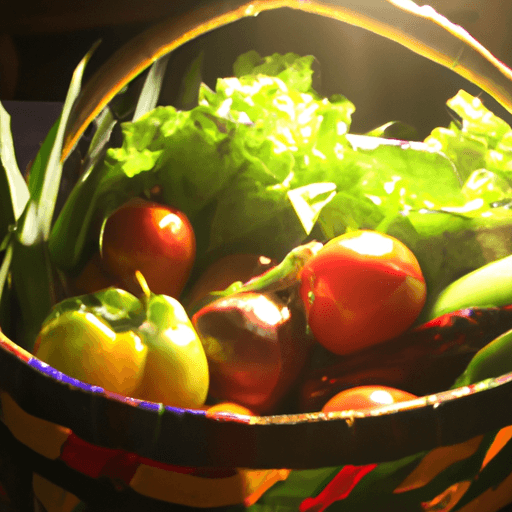Exploring the Benefits of Eating Organic Food
Organic food has become increasingly popular in recent years, and for good reason. Organic food is grown without the use of synthetic pesticides and fertilizers, and is free of genetically modified organisms. It is produced using sustainable farming practices that promote healthy soils and the conservation of natural resources. Unfortunately, organic food is often more expensive than conventionally grown food, which can make it difficult for people to make it part of their regular diets. In this article, we will explore the many benefits of eating organic food and how it can impact overall health and wellness, while also examining the current state of organic food production, availability, and cost.
The Health Benefits of Organic Food
Organic food is healthier for both the environment and the consumer. Studies have found that organic produce has higher levels of antioxidants, minerals, and vitamins than conventionally grown crops. Organic food is also free of chemical residues, which can be harmful to human health. Organic meat has also been found to be higher in some essential nutrients, such as omega-3 fatty acids, than conventionally raised meat.
Organic food is also safer for the environment. Organic farming methods reduce the risk of water contamination and soil erosion, while also helping to preserve biodiversity. Studies have also found that organic farming methods can help to increase soil fertility and reduce the need for fertilizer.
The Risks of Non-Organic Food
Conventional farming methods can have serious negative consequences for both the environment and human health. The use of synthetic fertilizers and pesticides can lead to water contamination and soil degradation, while also contributing to climate change. Additionally, the use of genetically modified organisms has been linked to a range of health risks, including allergies, digestive problems, and even cancer.
The Changing Landscape of Organic Food
In recent years, the production and sale of organic food has increased significantly. This has resulted in a greater availability of organic food, as well as a decrease in cost. In the United States, organic food now accounts for more than 5% of total food sales. This increase in organic food has also made it easier for people to make organic food part of their regular diets.
Making Organic Food Part of Your Diet
Although organic food can be more expensive than conventional food, there are still ways to make it part of your regular diet. One option is to shop at local farmers’ markets, where organic food is often available at a lower cost. It is also possible to buy organic food in bulk, which can help to reduce costs. Another option is to grow your own organic food, which can help to reduce costs and ensure the freshest produce.
Conclusion
Organic food has numerous benefits for both human health and the environment. Organic food is higher in essential nutrients and free of chemical residues, while also helping to reduce water contamination and soil erosion. Although organic food can be more expensive than conventional food, there are still ways to make it part of your regular diet. By making smart shopping choices and growing your own organic food, you can easily enjoy the health and environmental benefits of organic food.
















Comments
Leave a Comment